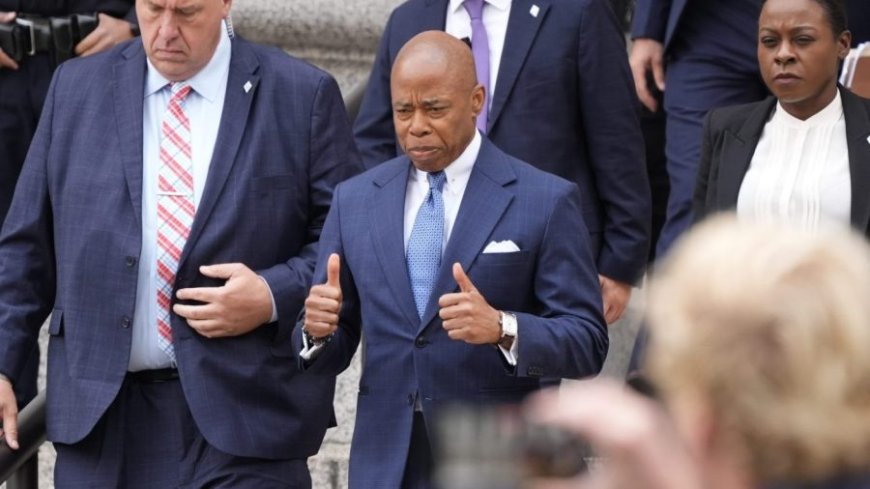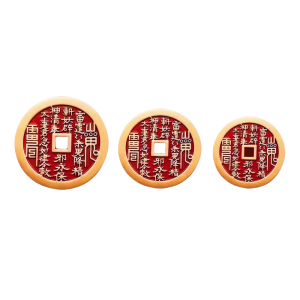Mayor Adams’s Turkish delights
Adams loved to live high on the hog, particularly at the expense of others.

Tip O’Neill famously said “all politics is local.” His quip could have no greater relevance than to the present situation in New York City, where Mayor Eric Adams is under federal indictment.
The rubber meets the road in city government. You don’t call President Biden for a new traffic light at the corner or a fire permit to open a new building. Most people deal with middle-management city officials.
In New York, free-spending people go right to the top. They are the big donors, the real estate interests, those seeking a city contract — and, in this case, the Turkish government.
Living in New York, I always knew Adams had a reputation for corruption. It wasn’t one particular act that he had done in his former office as Brooklyn borough president or as mayor, but there was a feeling that he was in it for the money.
Adams loved to live high on the hog, particularly at the expense of others. He routinely dined with friends at the Midtown restaurant owned by Johnny and Robert Petrosyants — unsavory twin brothers who pleaded guilty in 2014 to felony charges related to a money-laundering scheme. The brothers had a long record of unpaid tax bills and lawsuits.
Adams would order his favorite dish, the $55 branzino, as he dined with pols and businessmen. He never got a check. It was all on the house.
Over the last eight years, the Petrosyants brothers have been accused in lawsuits of diverting funds intended for one project to another and of breaking agreements with investors, landlords and lenders, all while schmoozing with Adams and trading on the relationship to attract new opportunities.
On Sept. 26, U.S. Attorney Damian Williams unsealed a 57-page, five-count federal indictment naming Adams as the sole defendant. The grand jury charged that, beginning in 2014, seven years before he was elected mayor, Adams sought and accepted “improper valuable benefits,” including luxury international travel, from wealthy foreign businesspeople.
Williams said in a press release that Adams took bribes in the form of illegal travel benefits, valued at roughly $100,000, from Turkish nationals. The quo for the quid was Adams’s help in allowing the new Turkish consulate to open without a fire inspection in time for a visit by Turkish President Recep Tayyip Erdogan. Thus, Adams “put the interests of his benefactors, including a foreign official, above those of his constituents.”
The indictment recites in exquisite detail what Adams allegedly received and from whom, and the steps he took to hide his behavior. It shows that the Turks had the cooperation of many of his associates and of the foreigners who allegedly paid him off.
Adams, of course, has the presumption of innocence. But, reading the indictment, I believe as a former federal prosecutor that the mayor’s guilt fairly shrieks from its pages.
The only problem with the case is the unusual form of payment. Adams is not charged with receiving cash. He received free travel and hotel accommodations for foreign trips to Turkey and elsewhere. Undoubtedly, he received something of value from the Turks. But not cash.
Adams liked to live lavishly, particularly if it was comped. He traveled on Turkish Airlines and got upgraded to first or business class with coach tickets that he never purchased in the first place. When he got to his various destinations, they tore up the check at luxury hotels and he was treated to haute cuisine. To paraphrase Mel Brooks, it’s good to be the mayor.
Adams allegedly received illegal campaign contributions from Turkish nationals disguised as legal contributors and from “straw” contributors who were really acting for others. This continued with contributions to his expected 2025 reelection bid. Some of these contributions qualified for New York’s matching funds program at a rate of eight times what was contributed.
The government will have to prove that Adams, and not his campaign, knowingly collected every one of these foreign contributions involving straw donors. Adams is not charged with pocketing any of these illegal contributions. He claims that this is normal political activity.
Adams is also taking a leaf from the recent Supreme Court case Snyder v. U.S., which held that a payment to a local official after an official act is accomplished is a gratuity and not a bribe. To make it a bribe, the prosecutor must prove that the payment preceded the official act. The particular statute under which Adams is indicted criminalizes bribery, not gratuities. If Adams were a federal official, receipt of a gratuity would definitely be illegal.
But if receipt of the free travel and accommodation was innocent, why did the mayor go to extraordinary lengths to hide and obfuscate the Turks’ largesse via phony emails and erasure of real messages? On one occasion, Adams told an aide that he had left $10,000 in cash in an envelope in her desk drawer, instructing her to deliver the cash to Turkish Airlines as a repayment of what it was owed. When she looked, there was no envelope and no cash.
Pressure has mounted on Adams to resign. “I am not going to resign,” he said defiantly, “I’m going to reign.”
Adams’s behavior is undoubtedly reprehensible, and the charges should stick. Because he is alleged to have committed a number of federal crimes, the Department of Justice is on firm legal ground.
There have been 110 mayors of New York since the office's establishment in 1665. Eric Adams is the first to be indicted.
Politically, Adams appears to be a cooked goose. As President Lyndon B. Johnson once said, “When the burdens of the presidency seem unusually heavy, I always remind myself it could be worse. I could be a mayor.”
James D. Zirin, author and legal analyst, is a former federal prosecutor in New York’s Southern District. He is also the host of the public television talk show and podcast Conversations with Jim Zirin.
What's Your Reaction?





















































